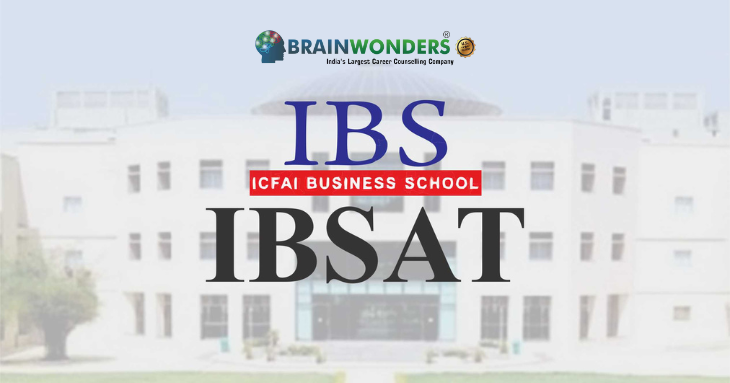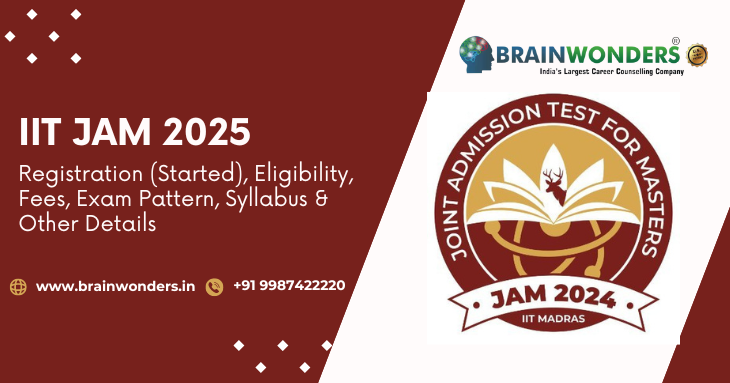

Take Brainwonders Career Test and make the right decisions for your college and course ahead
Let your unique personality, strengths, and traits guide to make the best decdision of your life!
Blog
01 April,2024 | By Brainwonders

The 12th results were announced, and this is where many students asked themselves what to do after the 12th in commerce. We have specially made this blog for students who want to learn the top courses after 12th without maths. So, without further ado, let's get into this.
The commerce stream has long been a popular choice among 10+2 students, offering a diverse range of options at the university level and a multitude of attractive career paths. In most schools, students have the flexibility to study commerce subjects with or without mathematics, providing them with the freedom to tailor their academic journey according to their interests and aptitudes.
For those who have opted for the commerce stream without mathematics, this article delves into the various courses after 12th grade and the promising job prospects they hold. By exploring these alternatives, students can discover exciting opportunities to leverage their commerce expertise and thrive in their desired fields. To help you out, we've compiled a list of Top 10+ Courses After 12th Commerce Without Maths.
The commerce stream, whether pursued with or without mathematics, offers a wealth of promising job prospects. However, it is important to note that students who choose commerce without mathematics may be limited in specific career fields that are more accessible to their peers who have opted for the commerce-mathematics combination.
While students opting for commerce without mathematics cannot pursue some specialized career paths, they still have a diverse range of options available to them. These include courses in humanities, law, finance, marketing, and even MBA programs that do not require a strong mathematical background.
On the other hand, students who select commerce with mathematics have a more comprehensive range of opportunities at their disposal. They can explore a vast array of courses involving economics and accounting, and within the management domain, they have access to a broader spectrum of specializations.
Ultimately, both paths within the commerce stream hold valuable opportunities, and students should carefully consider their interests, aptitudes, and long-term career goals when making their choices.
For students who have chosen the commerce stream without mathematics, a wealth of opportunities awaits them. Some of the promising domains in which they can pursue rewarding careers include:
A Bachelor of Commerce is one of the most popular careers in commerce without math. An undergraduate degree in commerce (B.Com.) is a three-year programme that introduces students to the basics of finance, accounting, business, and other commerce-related topics. A bachelor of commerce degree is a good alternative if you want to study business without learning arithmetic.
To pursue this degree, you can skip taking math in high school. This course is open to students who have completed 12th grade. Among the topics covered in a B.Com degree programme are corporate taxation, company law, financial accounting, bookkeeping, and even performing arts management. It is one of the best options for students interested in careers in finance, accounting, and other business-related fields.
| Careers | Average Salary |
| Customs Officer | ₹22,000-26,000 |
| Logistician | ₹20,000-130,000 |
| Treasurers and Controller | ₹20,000-40,000 |
| Administrator | ₹20,000-40,000 |
| Bank Probationary Officer PO | ₹25,000-80,000 |
You may acquire a B.Com (Honors) degree after finishing your 12th-grade examinations if you want to pursue a business career without taking math classes. This is a fantastic alternative if you choose something other than mathematics as a commerce-related topic. In addition, you do not need to be an expert in mathematics to complete this course. For those who want to concentrate in a particular area, B.Com (Honors) is the ideal option. Many students mistake B.Com with B.Com (Honors).
However, there is a huge gap between the two degrees regarding what they cover. A B.Com (Honors) degree allows you to focus on a specific area of commerce, whereas a B.Com (General) program provides a broad perspective.
The industry places a premium on B.Com (Honors) degrees. If you're interested in specialising in a particular field, a B.Com (Honors) will prepare you for an excellent career after 12th commerce without math.
Marketing, Finance, Economics, Accounting, International Business, Information Science, Management, Accounts, Taxation, Investment Management, Law, Banking (and Insurance), and Human Resources are just a few popular specialisations in the B.Com (Honors) course.
Top Careers for B.Com. (H)
| Careers | Average Salary |
| Real Estate Broker | ₹25,000-60,000 |
| Residential Advisor | ₹15,000-45,000 |
| Police Officer | ₹20,000-70,000 |
| Paramilitary | ₹16,000-60,000 |
| Squash Player | ₹20,000-60,000 |
View more about top careers related to B.Com.(H)
If you’re interested in the business sector and want to seek leadership positions in firms, then acquiring a Bachelor of Business Administration degree would be great. A BBA degree teaches you the essentials of management, business procedure, and related courses.
It helps you develop a firm foundation to study and grasp the higher ideas of management and organisation. If you intend to pursue an MBA (Master of Business Administration), then completing a BBA may be useful. It will familiarise you with many ideas an MBA school covers.
As one goes out of his school life, he will be introduced to the working world. The training will help him learn vital professional and managerial skills. It will help him comprehend risk management abilities and make judgments as a leader. It also sharpens one’s thinking on numerous tactics and phases of operating a company or being an entrepreneur. Over 3 years, the BBA Course helps a person develop the most fundamental management abilities. The course includes various subjects, including financial and advertising management, business economics, business law, accounting regulations, IT and computer principles, and more. BBA is not only a degree but is truly a holistic approach to management.
The BBA education allows one to manage major organisations and qualify for interdisciplinary management jobs. If one recently earned a B.B.A. degree, he will be ready as an executive, operations manager, loss prevention manager, cost evaluator, procurement and sales manager, and so on.
One of the perks of obtaining a B.B.A is that it allows you to be independent at an early age.
BBA offers you the option to specialise in many subjects, including the following: BBA in Finance, BBA in Human Resources, BBA in Computer Application, BBA in Hospitality, BBA in Information Systems, BBA in International Business, BBA in Business Administration, BBA in Entrepreneurship, BBA in Retail, BBA in Accounting, BBA in Tourism, BBA in Sports Management.
| Careers | Average Salary |
| Equal Opportunity Representatives and Officer | ₹45,000-50,000 |
| Administrator | ₹20,000-40,000 |
| Banking Executive | ₹30,000-80,000 |
| Airport Operations Manager | ₹20,000-45,000 |
| Advertisement & Brand Manager | ₹30,000-200,000 |
A Bachelor of Law is another common career option for 12th-grade students. While the normal LLB degree is a postgraduate study, an integrated course may be used to get one of these. A combined programme, such as BA+LLB, enables you to get a legal degree immediately upon completion of the 12th grade. The integrated study in law is five years long, yet it eliminates the need to seek a legal degree separately.
An LLB degree educates students about the many laws that exist in our nation and provides them with an overview of them. You will gain knowledge of Indian law, legal practices, and pertinent topics. The areas covered include human rights, contract law, tax law, tort law, labour law, equity and trusts, intellectual property law, and evidence law. Apart from studying numerous laws, you'll understand how the justice system works.
A strong basis for further schooling: Numerous courses enable students to combine their law studies with those of business or accounting, as well as law and non-legal degrees.
Numerous employment opportunities: In addition to becoming a lawyer, law graduates are qualified to work in a variety of disciplines, including media and law, academia, trade and industry, social work, and politics.
Obtaining a legal degree does not guarantee quick success or a big sum of money, but it does ensure that success is near. This professional designation entitles the bearer to greater job security and a better income than those without.
You may have a strong sense of fairness and a desire to repair the system's disability. Studying law gives you the legal education and credentials necessary to make that critical change.
| Careers | Average Salary |
| Lawyer | ₹15,000-350,000 |
| Corporate Counsellor | ₹50,000-250,000 |
| Administrative Law Judge | ₹64,000-96,000 |
| Law Teacher | ₹40,000-80,000 |
| Civil Lawyer | ₹30,000-45,000 |
Get Expert Career Guidance - Just One Click Away
Without math, Chartered Accountancy is one of the most popular career options in commerce. One of the best things about this career path is that it does not require you to study math in 12th grade. Because math isn't necessary for CA, it's a great choice for commerce students who didn't choose math.
A three-tier exam is required to become a Chartered Accountant. Another advantage of CA is that you can enrol in its programme immediately after graduating from high school (10th standard). The Foundation Course, Intermediate Course, and CA Final are the three stages of the programme.
After completing these three stages, you must complete a 2.5-year internship. After completing the internship, you will receive your Chartered Accountant certification. This three-year programme is an excellent way to begin a career in accounting.
Because of their unique job profile, CAs are in high demand. Chartered accountants assist businesses in keeping track of their books and accounts and adhering to the necessary regulations. In India, a Chartered Accountant earns INR 7.8 lakh per year. So, even if you don't have maths in your 12th-grade commerce class, it's a lucrative career.
| Careers | Average Salary |
| Chartered Accountant | ₹30,000-200,000 |
| Credit Authorizer | ₹30,000-83,000 |
| Banker | ₹30,000-40,000 |
| Auditor | ₹27,000-40,000 |
| Enterprise Information Officer | ₹50,000-60,000 |
View more about top careers related to Chartered Accountancy
CMA (Certified Management Accountancy) is another common career option for commerce students who want to study something other than mathematics. A CMA is responsible for evaluating and processing data from a variety of sources in order to optimise performance. They are corporate finance and accounting gurus.
You can apply for this position if you are a commerce student. As with CA, it does not require math as a mandatory subject in the 12th grade. To pursue a career in this area, you'll need a solid grasp of mathematics and accounting skills.
To become a Certified Management Accountant, you must join the Institute of Chartered Accountants in India (Institute of Cost Accountants of India). If you pass the tenth standard, you may enrol in the CMA Foundation Course immediately after graduation, complete the twelfth standard, and qualify for the foundation test.
Following that, you'll need to enrol in the Intermediate course. If you have a graduate degree in a discipline other than Fine Arts, you may enrol in the Intermediate course bypassing the CAT test. This eliminates the requirement for you to enrol in the Foundation Course.
After completing the Intermediate course, you must complete the Final Course and Training. After that, you must pass the final test to become a CMA. In India, the average annual salary of a CMA is INR 7.9 lakh. Thus, it is a great professional path following 12th commerce sans math.
| Careers | Average Salary |
| Financial Analyst | ₹40,000-60,000 |
| Financial Examiner | ₹50,000-100,000 |
| Financial Manager | ₹35,000-40,000 |
| Financial Service Manager | ₹20,000-60,000 |
View more about top careers related to Certified Managment Accountancy
Company Secretary is also an excellent job option for commerce majors. Additionally, it can be optional for you to have mathematics as a mandatory subject. Company secretaries ensure that their firm complies with all applicable requirements. They assist the board of directors in fulfilling and comprehending various regulatory requirements. CS is one of the better job possibilities since it includes courses in commerce without requiring students to take arithmetic.
They are responsible for ensuring that their firm meets all legal filing requirements, including yearly earnings reports, tax responsibilities, and quarterly earnings disclosures. The Institute of Company Secretaries of India conducts examinations and offers training to anyone interested in becoming a Company Secretary in India.
Enrol in the ICSI Foundation course if you have completed the 12th standard and then continue to the Intermediate course after the Foundation course is completed.
I am enrolling in the ICSI Intermediate course and must complete the Foundation course.
After successfully completing the Intermediate course, you must sit for the ICSI Final Exam and get the necessary training to become a qualified Company Secretary. In this nation, the typical annual salary of a Company Secretary is INR 5.8 lakh. Company secretaries with at least 10 years of experience earn a median yearly salary of INR 14 lakh. As a result, it is unquestionably one of the top job alternatives in commerce without requiring math.
As with a Chartered Accountant, a Company Secretary is a critical component of any corporate organisation, large or small, public or private. Every corporation needs a Company Secretary to oversee routine tax, legal, and investment matters. Numerous businesses employ individual company secretaries, while others use the services of Company Secretary firms.
A competent corporate secretary may find work in various businesses, from financial institutions and banks to heavy industry and government organisations.
Hotel Management is a three- or four-year degree programme that prepares students for careers in hospitality service establishments such as hotel administration, hospital administration, airline, cruise line, and multinational corporations, particularly in food service, food preparation, and marketing. The programme trains students to join the hospitality industry as leaders and managers equipped with a strategic mindset. Additionally, education and professional training in Hotel Management and Hotel services prepare students to be entrepreneurs in the hospitality industry. It integrates management theory and practices with hands-on hospitality courses, professional internships, and a business speciality.
The course aims to hone the fundamental abilities of students who will work in the hospitality business shortly. These abilities may be used for food and beverage preparation, service, front office operations, and cleaning.
Apart from that, the course emphasises the development of student's abilities. In the business, an applicant with a positive demeanour is usually desired.
Additionally, for students interested in the food and beverage industry, the course seeks to provide fundamental information on hygiene, food safety, and nutrition by international standards.
The Bachelor of Hotel Management (BHM) programme lasts four academic years. Certain schools and universities offer three-year programmes. Every academic year is divided into two semesters. Each semester consists of 16–20 weeks of classroom and laboratory work.
Due to the professional character of the course, students are obliged to participate in industry exposure. Typically, industrial training occurs during the fifth or sixth semester of the degree. The length of the training might range between six and nine months.
| Careers | Average Salary |
| Flight Attendant | ₹25,000-35,000 |
| Marketing Manager | ₹25,000-70,000 |
| Sales Manager | ₹40,000-65,000 |
| Food Critic | ₹20,000-45,000 |
| Concierge | ₹15,000-25,000 |
View more about top careers related to Hotel Management
India's travel and tourism industries are witnessing extraordinary expansion at the moment. The business is one of India's biggest and most lucrative sectors, contributing considerably to the country's foreign currency earnings. According to several projections, by 2025, the sector will provide over 45 million employees in India.
Students have abundant job prospects in the rapidly increasing travel and tourism business. Candidates interested in pursuing a career in the industry may select from positions with travel agencies, government tourist departments, tour operators, immigration and customs services, airlines, and hotels, to name a few.
At the undergraduate or postgraduate level, candidates might pursue a degree, diploma, or certificate programme in travel and tourism. Additionally, candidates may pursue a PhD in their chosen discipline of travel and tourism to establish a career in the field of research.
Travel and tourism sector professionals are concerned with offering high-quality services to those away from home on vacation or business. Candidates interested in pursuing a career in tourism must have a passion for travel, a desire to acquire new skills, and the ability to remain current on global news and socioeconomic trends.
| Careers | Average Salary |
| Tour Planner | ₹25,000-45,000 |
| Travel Agent | ₹15,000-60,000 |
The Bachelor of Commerce or BCom Foreign Trade Management degree programme is a three-year undergraduate programme. Top commerce colleges offer courses to develop aspirants' skills and knowledge in international business and the marketplace.
BCom Foreign Trade Management is open to candidates who have completed their 10+2 from a recognised board with a minimum score of 50%. While candidates may have completed their 10+2 in any stream, the course is primarily attended by commerce students interested in a career in foreign trade management.
Most colleges admit students based on their performance on their qualifying exams. Certain colleges/universities, on the other hand, require candidates to write an entrance exam.
The tuition fees for the BCom Foreign Trade Management programme range from INR 25,000 to INR 5,00,000 for the basic course.
Graduates of the course can pursue additional postgraduate degrees such as MBA, MCom, and others. Graduates are also hired as business analysts, market analysts, auditors, managers of foreign trade operations, professors/lecturers, and marketing managers.
The course's primary recruiting areas include trade management, international business management, accounting, financial advisory, public and private sector banks, aviation and transportation agencies, the export and import industry, and customs houses. Salary ranges between INR 4,00,000 and INR 7,00,000 upon completion of the course.
The process of deciding on a career can be a challenge. But when deciding on a career, it's best to think about what you're passionate about and what's most important to you. The more you enjoy your work, the more likely it is that you will advance in the ranks of your profession. Working hard and making progress can be difficult if you don't enjoy your job on the other hand. When deciding on a career path, keep these points in mind.
Completing a BSW opens doors to a wide array of settings, fields, and sectors for individuals. Graduates of this program are highly sought after in both the public and private sectors. Opting for a BSW is an ideal career path for those with a strong sense of social responsibility and a desire to make a meaningful impact on society through their professional endeavours. Your achievements and accumulated experience largely influence the potential for earnings in this field.
The three-year Bachelor of Journalism and Mass Communication (BJMC) degree course offers a plethora of career opportunities. Graduates can explore roles in publishing companies, radio stations, newspapers, television channels, and internet media agencies. Successful graduates have the chance to enhance and refine their skills in gathering, analyzing, and disseminating information to a broad audience.
Frequently Asked Questions about Courses After 12th Commerce Without Maths
1. What courses are available after 12th Commerce without Maths?
Answer: After completing 12th Commerce without Maths, you can choose from a variety of courses such as Bachelor of Commerce (B.Com), Bachelor in Business Administration (BBA), Bachelor in Hotel Management (BHM), Bachelor of Arts (BA), Bachelor in Computer Applications (BCA), Bachelor of Journalism and Mass Communication (BJMC), Bachelor in Fine Arts (BFA) and Bachelor in Library Science (BLIS).
2. Can I do BCA without Maths?
Answer: Yes, you can pursue a Bachelor in Computer Applications (BCA) degree even if you have yet to study Maths at the 12th standard level. However, basic mathematics and logical reasoning knowledge are essential to excel in the field.
3. Are there any job opportunities after 12th Commerce without Maths?
Answer: Yes, job opportunities are available after completing 12th Commerce without Maths. Job seekers can find positions in accounting, finance, banking, marketing and sales, retail management, customer service, hospitality management, media and advertising.
4. Can I pursue an MBA after 12th Commerce without Maths?
Answer: You can pursue an MBA after completing 12th Commerce without Maths. You can opt for a specialized MBA such as Marketing MBA or Human Resources MBA, which does not require Maths knowledge.
4. What are the career options after 12th commerce without maths?
Answer: Here is the list of career options after 12th commerce without maths:
4. Is maths compulsory for CA?
Answer: Mathematics is not compulsory for pursuing the Chartered Accountancy (CA) course in India.
Take Brainwonders Career Test and make the right decisions for your college and course ahead



,_Syllabus,_Pattern,_Old_Question_Papers.png)

